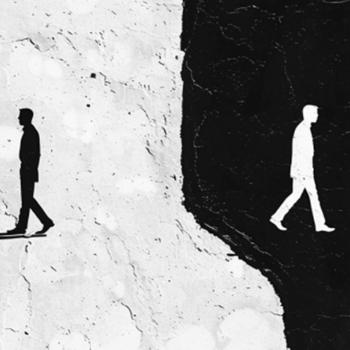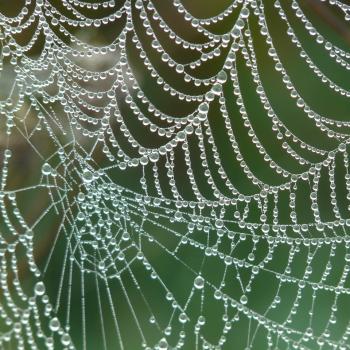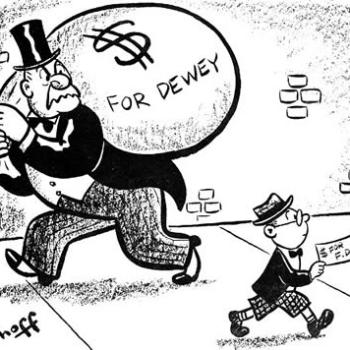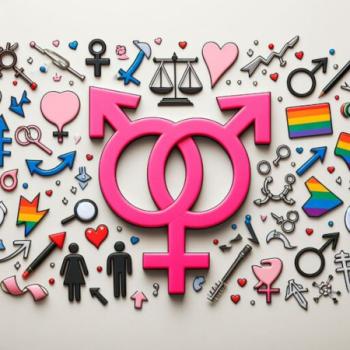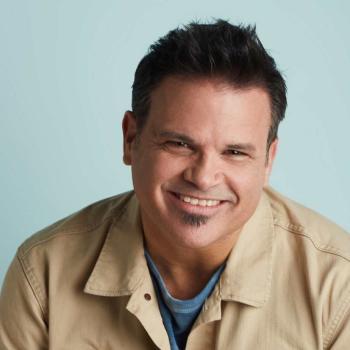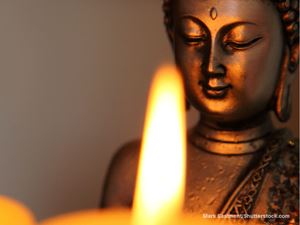
The Buddhist concept of karma has entered the English lexicon in recent decades, and its use has exploded. People use it in casual conversation, and it’s a popular and convenient term for that proverb that says, “what goes around comes around,” i.e., people get what they deserve. Karma is the Sanskrit word for “action” or “doing” and is an integral part of many East Asian and Southeast Asian religions such as Buddhism, Hinduism, and Jainism. In these religions, karma is the consequences of actions, but it is more than the basic sense of cause and effect. In Buddhism, karma is a moral natural law that, like gravity, operates with or without awareness of it. Karma is not fate or predetermination, both of which suggest that there is nothing the individual can do to change things. In Buddhism, change is always possible. Each life bears the karmic results of earlier lives, yet the actions of each life can make future lives better or worse.
Each bad action creates bad consequences, but those consequences might be experienced in the short-term or through multiple lives. Karma accumulates through many reincarnations, and yet from a Buddhist perspective karma can be changed. The karma people build up in this life may not catch up to them during this life; it may not even affect them in their next life. Nevertheless, each person determines his or her own realities. Those experiencing bad karmic consequences from unknown pasts can contribute to better futures by seeking enlightenment and doing good. One such way of changing karma is to gain merit through studying the dharma, supporting Buddhist monasteries, practicing meditation, taking vows, or, in some cultures, going on a pilgrimage to various Buddhist shrines.
Someone who has lived a good life or accumulated merit will be reborn into a good situation, perhaps into a higher social position, into greater wealth, into a safer home situation, or a life with fewer hardships and challenges. On the other hand, a person who lived a life of greed and cruelty could be reborn with severe health challenges, into lower social or economic conditions, or as one even more trapped in the bad habits developed in earlier lives.
Some Buddhist traditions teach that there are realms of existence. Some of these realms are the existences of gods or demi-gods, while others are the existences of beasts or hungry ghosts. These terms merely represent experiential states. For example, those who are reborn as gods experience an easy life, full of riches and power and status. This is not necessarily good, however, because such people rarely achieve enlightenment. Their preoccupations with pleasures keep them from seeking the dharma or achieving merit, and when they die, they have no good karma to prevent a more unfortunate reincarnation. On the other hand, some are reborn as hungry ghosts, suffering constant cravings and dissatisfactions. They, too, find the pursuit of enlightenment difficult. The best rebirth is that of a human—fully vulnerable to suffering, but also capable of acquiring good karma, gaining merit, and seeking enlightenment.
There is some debate in different Buddhist traditions as to what happens to a person’s built-up karma once enlightenment is achieved. Some argue any remaining karma simply disappears. Others claim that when a person achieves enlightenment, they cease to create any karma whatsoever, since it is karma—both good and bad—that keeps a person trapped in samsara, the cycle of rebirth. Instead, an enlightened being lives out long enough to play out any remaining karma, and upon death, he or she achieves nirvana—complete liberation from the cycles of death and rebirth.
3/7/2023 2:28:04 AM

